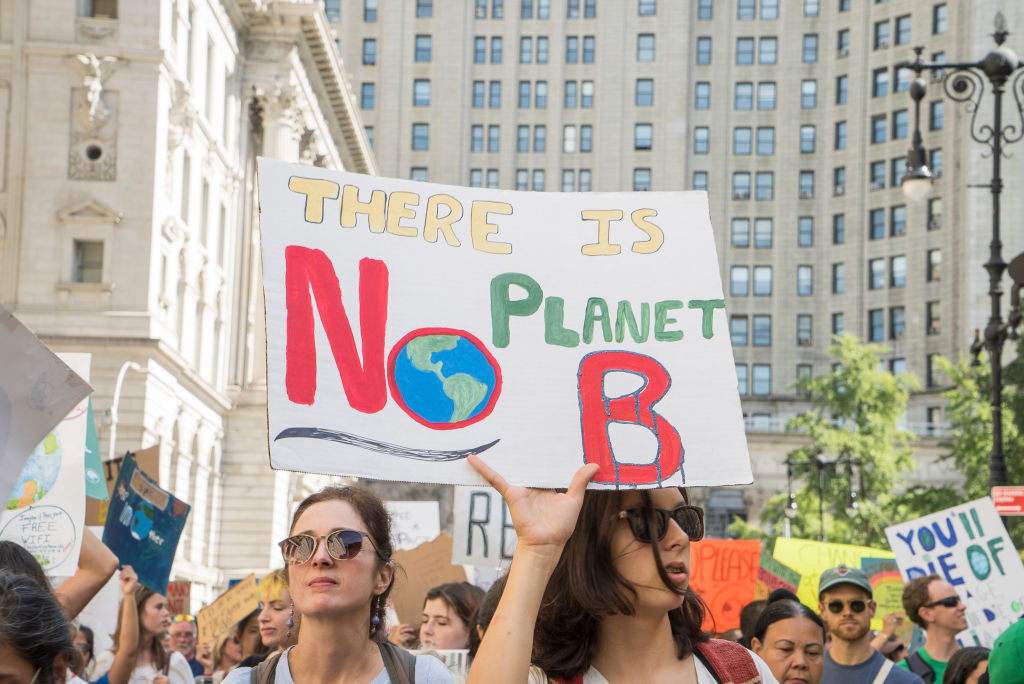
There couldn’t be a greater contrast between the roaring climate strikes all over the world ahead of the U.N. Climate Summit last week and the austere discipline of a courtroom. But these days the same demand is ringing out in streets and in courts: those responsible for the climate crisis must be held accountable.
At key moments in our history, notably in fights for racial and gender equality, courts have helped to accelerate social change. Litigation that is driven by those most affected has personalized abstract injustices, put facts on the public record, and exposed misinformation and political spin. It has also given the imprimatur of a formal hearing to the righteous demands of social movements. For the global movement for climate justice, these cases also help to drive a clear narrative of responsibility: as much as we have been made to grapple with our individual guilt, the truth is that governments and the fossil fuel industry bear the real responsibility for this crisis. Moreover, they know—and have known for decades—what they need to do to get us out of it.
The power of litigation to throw a wrench into the dangerous business-as-usual machinery of governments was first made clear in 2015. Less than two years after environmental group, the Urgenda Foundation and 886 Dutch citizens filed a lawsuit against the government of the Netherlands for its inaction on climate change, a Dutch District Court issued a groundbreaking decision. It found that the government’s failure to take reasonable steps to avoid dangerous levels of climate change was unlawful and ordered it to significantly reduce the Netherlands’ emissions by 2020.
Although the Dutch government appealed the decision, it agreed to implement the court’s order in response to the intense public spotlight that the lawsuit trained on its climate policy. Since 2015, the Dutch parliament has taken a range of measures to reduce emissions, including closing at least one coal-fired power plant, and has enacted some of the most ambitious climate policies in Europe. In 2018, a Court of Appeal emphatically upheld the original decision, citing the human rights obligations of the government. A final appeal by the government will be decided by the Dutch Supreme Court at the end of the year. At this point, the transformative political impact of the litigation is beyond dispute.
Urgenda’s case proved that governments cannot escape legal responsibility for the decades of promises that they have made to address climate change. Those promises date back to at least 1992, when the first international treaty on climate change committed governments to ‘stabilizing’ the concentration of greenhouse gases in the atmosphere, with rich countries taking the lead. In the 37 years since, we have moved at a terrifying pace in the opposite direction. The concentration of carbon dioxide in our atmosphere is higher now than it has been for millions of years and climate change has destabilized and devastated communities all over the world, punishing those who have contributed the least to our planet over-heating.
At the same time, the fossil fuel industry has continued to extract and sell products that its own scientists warned decades ago will have catastrophic consequences for humanity. A recent study confirmed that 71% of all greenhouse gas emissions since 1988 can be traced to just 100 fossil fuel producers. It should therefore come as no surprise that people around the world, from typhoon-devastated communities in the Philippines, to a Peruvian farmer watching local glaciers disappear, to coastal cities in the US at risk of sea level rise, are taking oil and gas companies to court as well.
Since Urgenda’s victory in 2015, cases demanding more ambitious climate action have been filed against governments in Europe, North America, Latin America, Africa and Asia-Pacific. A recent tally concluded that climate change-related lawsuits have been filed in at least 28 countries, and that these cases are being initiated by groups including young people, First Nations, women, farmers, families, migrants, students and organizations working for environmental and social justice. The diversity of plaintiffs reflects the full spectrum of people that have been and will be profoundly affected by climate disruption. In short, they represent all of us.
Climate litigation is still a new and evolving phenomenon. We will win some cases and lose others. The law does not always deliver justice. Lawyers will have to work hard to earn legitimacy among communities on the frontlines of climate change. But in the years to come, the demands of those who are fighting for their lives, their rights and their communities will inevitably, inexorably be vindicated. Justice is unquestionably on their side.
More Must-Reads From TIME
- The 100 Most Influential People of 2024
- How Far Trump Would Go
- Scenes From Pro-Palestinian Encampments Across U.S. Universities
- Saving Seconds Is Better Than Hours
- Why Your Breakfast Should Start with a Vegetable
- 6 Compliments That Land Every Time
- Welcome to the Golden Age of Ryan Gosling
- Want Weekly Recs on What to Watch, Read, and More? Sign Up for Worth Your Time
Contact us at letters@time.com